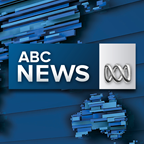
Updated
The quest to find the best coffee roaster in the world has kicked off in Melbourne, with a record number of 820 entries from nine countries in this year's Australian International Coffee Awards.
Key points:
- 300 milk-based entries, 200 espresso entries, entries for filter coffee, pour over, soy milk and immersion
- Judges assess different attributes like flavour, aftertaste, acidity
- The head barista says Australia is regularly breaking new ground in the coffee industry
A panel of almost 40 judges will be blind-testing up to 30 coffees a day over three days — not an exercise for the faint hearted.
"I've had some great coffee this morning," head judge Melissa Caia said.
"I've had probably 10, 12, 15 samples — I don't know, I lose count. I've just got to remember not to drink it all because I've still got the rest of the day to go, and I can drink up to 30 or 40 samples."
The judges are members of Australia's coffee fraternity, including roasters, professional baristas, cafe owners, and green bean suppliers.
 Photo:
The judges have the gruelling task of testing more than 15 samples. (ABC News: Claire Slattery)
Photo:
The judges have the gruelling task of testing more than 15 samples. (ABC News: Claire Slattery)
Judges deal with 'palate fatigue'
There are about 300 milk-based entries, 200 espresso entries, and the rest include entries for filter coffee, pour over, soy milk and immersion.
"Each panel of judges is going through their sample and assessing flavour, aftertaste, body, acidity, and all the different attributes," Ms Caia said.
"Recording their different scores and making their assessment on the quality of the coffee."
Words like "hazelnut", "lingering", "aromatic" and "berry fruit" are used to describe the samples, which are given scores out of six points.
The judges nibble on green apples and dry biscuits, as well as sipping water between tastes.
Ms Caia said the judges were encouraged to spit samples to avoid consuming too much caffeine.
"Naturally you'll get some palate fatigue later in the day, but these guys are coffee professionals," she said.
"They taste coffees daily. They would probably be tasting 10 or 12 coffees daily in their workplaces so they're used to it.
"But we are pushing them a fair bit this week."
In a separate room, seven baristas pump out the samples.
Adam Metelmann, the head barista at this year's awards, said it was an honour to be part of these events.
"To be asked is a big thing. Coffee has given me direction in life," he said.
"The whole reason I did this event in the first place is just to work with coffee.
"When you're in a job you only work with one or two, here you see coffees from all over the world."
The science of coffee
Making the sample coffees is an exact science. Each new roast is ground, weighed, extracted and poured to specific measurements.
"The role that a barista does these days, it's pinnacle," Mr Metelmann said.
"You need to know water quality, you need to be able to understand milk, conditions, equipment, it's no longer just someone who presses a button and packs a porta filter.
"We're representing farmers now, the customer wants to know about traceability, what's in the cup."
 Photo:
After the coffee is made, it is served to the judges for tasting. (ABC News: Claire Slattery)
Photo:
After the coffee is made, it is served to the judges for tasting. (ABC News: Claire Slattery)
And if you are wondering which country is doing it best, Mr Metelmann will point you in the direction of Australia.
"Certainly when you say coffee, I mean the techniques and our mantra around the industry," he said.
"We're lucky that the consumer is educated and very mature so they're pretty accepting of the weird stuff we want to throw at the them.
"But there's no doubt the rest of the world watches, we're definitely the ground-breakers."
Topics: tea-coffee, arts-and-entertainment, melbourne-3000
First posted









 Add Category
Add Category